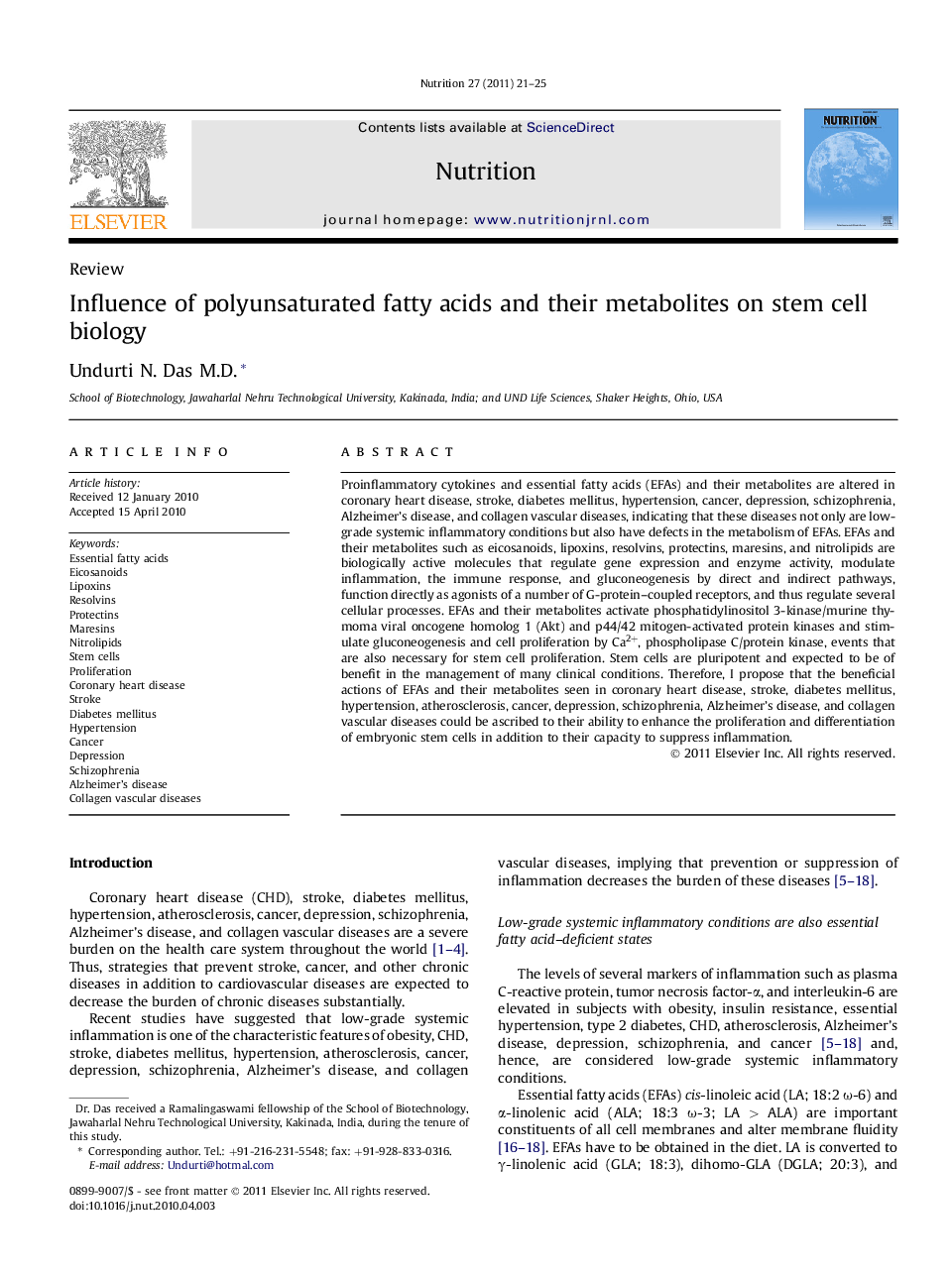| Article ID | Journal | Published Year | Pages | File Type |
|---|---|---|---|---|
| 3276751 | Nutrition | 2011 | 5 Pages |
Proinflammatory cytokines and essential fatty acids (EFAs) and their metabolites are altered in coronary heart disease, stroke, diabetes mellitus, hypertension, cancer, depression, schizophrenia, Alzheimer's disease, and collagen vascular diseases, indicating that these diseases not only are low-grade systemic inflammatory conditions but also have defects in the metabolism of EFAs. EFAs and their metabolites such as eicosanoids, lipoxins, resolvins, protectins, maresins, and nitrolipids are biologically active molecules that regulate gene expression and enzyme activity, modulate inflammation, the immune response, and gluconeogenesis by direct and indirect pathways, function directly as agonists of a number of G-protein–coupled receptors, and thus regulate several cellular processes. EFAs and their metabolites activate phosphatidylinositol 3-kinase/murine thymoma viral oncogene homolog 1 (Akt) and p44/42 mitogen-activated protein kinases and stimulate gluconeogenesis and cell proliferation by Ca2+, phospholipase C/protein kinase, events that are also necessary for stem cell proliferation. Stem cells are pluripotent and expected to be of benefit in the management of many clinical conditions. Therefore, I propose that the beneficial actions of EFAs and their metabolites seen in coronary heart disease, stroke, diabetes mellitus, hypertension, atherosclerosis, cancer, depression, schizophrenia, Alzheimer's disease, and collagen vascular diseases could be ascribed to their ability to enhance the proliferation and differentiation of embryonic stem cells in addition to their capacity to suppress inflammation.
